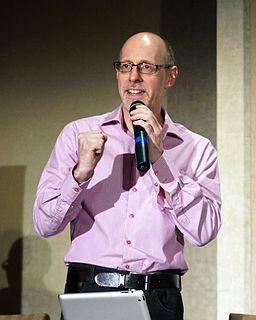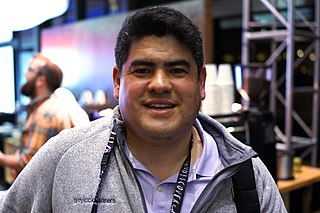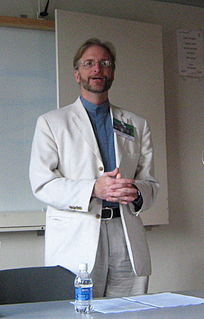A Quote by Richard Wiseman
Hugely enjoyable and insightfulGosling has produced the perfect combination of rigorous research and lightness of prose to create a book that will transform every reader into a super snooper.
Related Quotes
I'm often a little perplexed, when I read a review of a book, by the quotes that are pulled out as evidence of excellent prose. I don't think great novels are necessarily composed of great prose, or that there's a correlation between beautiful prose and the quality of a work of fiction. A really good, interesting novel will often let a little ugliness get into its words - to create a certain effect, to leave the reader with a certain sense of disorientation.
Every reader, as he reads, is actually the reader of himself. The writer's work is only a kind of optical instrument he provides the reader so he can discern what he might never have seen in himself without this book. The reader's recognition in himself of what the book says is the proof of the book's truth.
The book is finished by the reader. A good novel should invite the reader in and let the reader participate in the creative experience and bring their own life experiences to it, interpret with their own individual life experiences. Every reader gets something different from a book and every reader, in a sense, completes it in a different way.
The most difficult part of writing a book is not devising a plot which will captivate the reader. It's not developing characters the reader will have strong feelings for or against. It is not finding a setting which will take the reader to a place he or she as never been. It is not the research, whether in fiction or non-fiction. The most difficult task facing a writer is to find the voice in which to tell the story.
Works of art are not so much finished as abandoned. Perhaps poems can be perfect. A short-short story might even be perfectible, as effective and enjoyable for one reader as the next. But novels and other book-length narratives are great rambling things that always contain some flaws. For works of any length, there comes a point when your continued tinkering won't improve the whole, but will just trade one set of problems for another.
You have to seduce the reader, manipulate their mind and heart, listen to the music of language. I sometimes think of prose as music, in terms of its rhythms and dynamics, the way you compress and expand the attention of a reader over a sentence, the way the tempo pushes you towards an image or sensation. We want an intense experience, so that we can forget ourselves when we enter the world of the book. When you are reading, the physical object of the book should disappear from your hands.
There is always shame in the creation of an expressive work, whether it's a book or a clay pot. Every artist worries about how they will be seen by others through their work. When you create, you aspire to do justice to yourself, to remake yourself, and there is always the fear that you will expose the very thing that you hoped to transform.
In my couple of books, including Going Clear, the book about Scientology, I thought it seemed appropriate at the end of the book to help the reader frame things. Because we've gone through the history, and there's likely conflictual feelings in the reader's mind. The reader may not agree with me, but I don't try to influence the reader's judgment. I know everybody who picks this book up already has a decided opinion. But my goal is to open the reader's mind a little bit to alternative narratives.
There are some things fundamentally off about the stance of the book. And maybe that's okay; maybe every book is flawed, and great books, as flawed as they might be, articulate a moral argument that the reader then carries forward. The critique to this model is, of course, to ask: Should a book be ever so perfect that you come out of it with complete moral agreement that can be sustained?


































